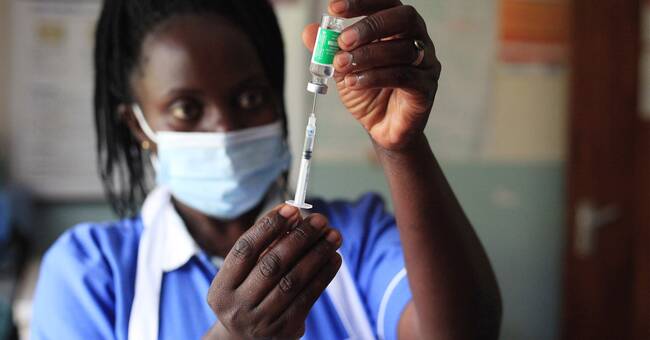To date, 1.36 percent of the population in the world's poorest countries have been vaccinated against covid-19.
In the richest countries in the world, the figure is significantly higher, more precisely 51.15 percent.
This is shown by a new data compilation from the WHO, UNDP and Oxford University, which also states that vaccine inequality has cost low-income countries close to SEK 330 billion in GDP losses in 2021, Vetenskapsradion reports.
Professor: Wrong to prioritize children
Stefan Swartling Peterson, professor of global health change at Karolinska Institutet and medical expert at Unicef, has previously argued that the uneven distribution of vaccines is both morally and epidemiologically wrong.
He believes that the new report is further proof that the gap needs to be addressed.
- Now there is also a third argument that shows that it is economically profitable to vaccinate away the pandemic because world trade can then open up.
The International Monetary Fund says that we get 200 times the money invested again, says Swartling Peterson to SVT News.
According to him, instead of rich countries now prioritizing vaccinating children, it should be in everyone's interest that healthcare workers and risk groups around the world are vaccinated.
- As it looks right now, we have a global shortage of vaccines.
If I take Uganda as an example, healthcare is overcrowded and people are dying in the middle of their lives.
The fact that you and other poor countries cannot even vaccinate your healthcare staff while we in the rich world vaccinate healthy children is both morally and financially wrong.
Involves several risks
To increase the rate of vaccination in the poorest countries of the world, vaccines, healthcare professionals and a willing arm to inject are needed. The report shows that the rich world can achieve this by increasing healthcare costs by 0.8 percent, while the poorest countries would need to increase their healthcare costs by 57 percent.
- If we do not reduce the gap in the vaccine distribution, it means several risks. The pandemic will continue, mutations will spread and we will have the economic aspect. It is as if the world is divided into two parts where the economies of poor countries go down while rich countries have a sugar shock of strong financial stimuli from the finance ministers, says Swartling Peterson.

